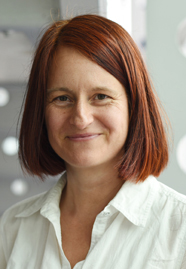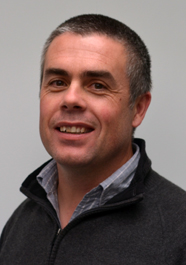Wednesday 31 October 2018 8:21am
Pathology and Biomedical Science researchers Associate Professor Anitra Carr and Dr Logan Walker gave lectures at parliament this week in an event organised by the University of Otago's OZONE Group.
The event showcased the international reputation and contribution of five of Otago's early career researchers.
The link between vitamin C and infection: a simple fix that could save lives
Associate Professor Anitra Carr (Centre for Free Radical Research)
 Severe infections, such as pneumonia, have significant morbidity and can develop into more severe conditions such as sepsis and septic shock, with the hallmark of multiple organ failure and mortality rates of up to 50%, the highest mortality in critically ill patients. We have found that these critically ill patients are severely depleted in vitamin C, a molecule essential to life due to its numerous biosynthetic and regulatory roles in the body. Several recent clinical trials have indicated that administration of low gram doses of vitamin C to these patients can significantly decrease organ failure and mortality (by up to 80%). With funding from an HRC Sir Charles Hercus Health Research Fellowship and in collaboration with clinicians from Christchurch and Wellington Hospitals, we have recently initiated the first clinical trial in a NZ ICU to test the efficacy of vitamin C in patients with septic shock. We aim to not only elucidate the underlying mechanisms of action of vitamin C, but to also improve the outcomes of these critically ill patients.
Severe infections, such as pneumonia, have significant morbidity and can develop into more severe conditions such as sepsis and septic shock, with the hallmark of multiple organ failure and mortality rates of up to 50%, the highest mortality in critically ill patients. We have found that these critically ill patients are severely depleted in vitamin C, a molecule essential to life due to its numerous biosynthetic and regulatory roles in the body. Several recent clinical trials have indicated that administration of low gram doses of vitamin C to these patients can significantly decrease organ failure and mortality (by up to 80%). With funding from an HRC Sir Charles Hercus Health Research Fellowship and in collaboration with clinicians from Christchurch and Wellington Hospitals, we have recently initiated the first clinical trial in a NZ ICU to test the efficacy of vitamin C in patients with septic shock. We aim to not only elucidate the underlying mechanisms of action of vitamin C, but to also improve the outcomes of these critically ill patients.
Genomic health and cancer: targeting the most vulnerable
Dr Logan Walker (Mackenzie Cancer Research Group)
 Imagine a scenario where a woman aged 35 presents with breast cancer. She is successfully treated. Three years later she returns to hospital with ovarian cancer. Again she is treated but dies 6 months later. How do we prevent such health outcomes and improve the long-term wellbeing of our people? Our ability to understand our genetic makeup is revolutionizing clinical care of patients and their families. It has significant implications for disease treatment and prevention and may have saved the life of the women in the scenario. However, we are still uncovering the huge potential of genetics in health. Our research addresses two major health challenges: 1) How many other patients are like the woman in the scenario, and are missing out on life saving interventions? 2) How do doctors interpret and utilise the growing abundance of genetic information? Partnering with international genetic programs is not only allowing us to accelerate the availability of this health related knowledge, it is enabling us and other New Zealand genetic researchers to take leading roles.
Imagine a scenario where a woman aged 35 presents with breast cancer. She is successfully treated. Three years later she returns to hospital with ovarian cancer. Again she is treated but dies 6 months later. How do we prevent such health outcomes and improve the long-term wellbeing of our people? Our ability to understand our genetic makeup is revolutionizing clinical care of patients and their families. It has significant implications for disease treatment and prevention and may have saved the life of the women in the scenario. However, we are still uncovering the huge potential of genetics in health. Our research addresses two major health challenges: 1) How many other patients are like the woman in the scenario, and are missing out on life saving interventions? 2) How do doctors interpret and utilise the growing abundance of genetic information? Partnering with international genetic programs is not only allowing us to accelerate the availability of this health related knowledge, it is enabling us and other New Zealand genetic researchers to take leading roles.